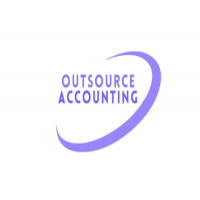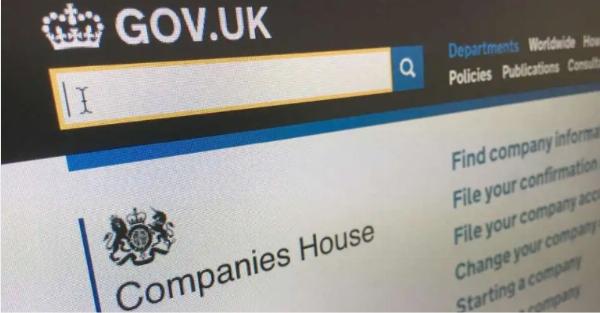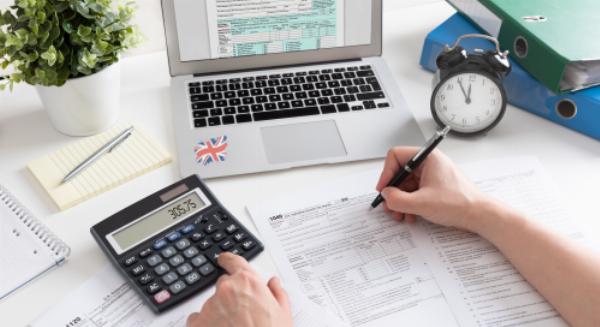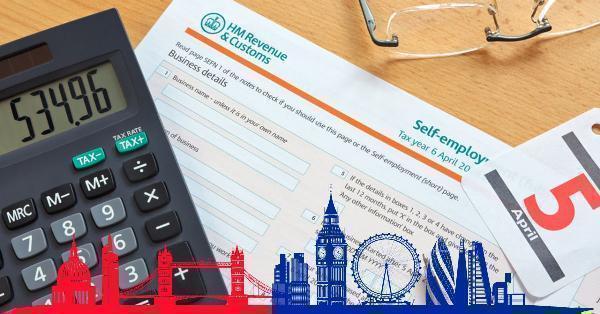How to File Your Self Assessment Online in the UK
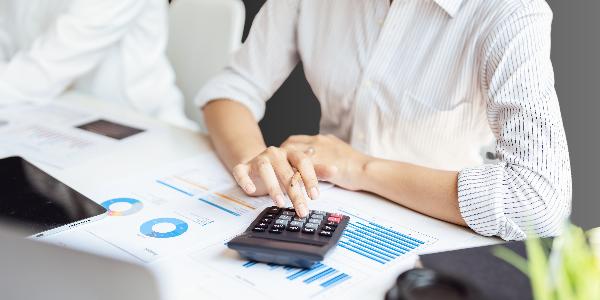
Strong 8k brings an ultra-HD IPTV experience to your living room and your pocket.
Filing a self assessment online in the UK is an essential process for individuals with additional income sources such as self-employment, rental properties, or investments. It may seem complicated, but with the right information and tools, it’s straightforward. This detailed guide will help you navigate the process, avoid penalties, and ensure you meet the self assessment submission deadline. Whether you're new to self assessment or a seasoned filer, this post covers everything you need to know about online tax return filing for self-employed UK residents and others required to file.
Why is Self Assessment Important?
Self assessment is the method by which HMRC calculates the tax you owe based on income that hasn't already been taxed. This can include earnings from self-employment, rental income, foreign income, dividends, or even selling assets like shares or property. It ensures that you're paying the correct amount of tax due, especially if you have multiple sources of income or significant deductions.
Do You Need to File a Self Assessment?
The short answer is: it depends on your circumstances. You must file a self assessment tax return if you:
- Earned over £1,000 from self-employment.
- Have rental income from property.
- Earn dividends from shares above the tax-free allowance.
- Made profits from selling assets.
- Are a director of a company (with some exceptions).
- Earn over £100,000 in a tax year.
Even if your tax is already deducted from your salary via PAYE, if you have other income, you may still need to complete a self assessment. You can always use the HMRC self-assessment eligibility checker on their website if you’re unsure whether you need to file.
Key Dates and Deadlines: Self Assessment Submission Deadline UK
Knowing the deadlines for filing your self assessment online in the UK is crucial. Missing these can lead to financial penalties:
5th October – Register for self assessment online in the UK if you’re filing for the first time.
31st October – Deadline for paper tax returns (less common due to the convenience of online submission).
31st January – Deadline for online submission of your self assessment and payment of any tax owed.
For example, for the tax year 2023/2024, the deadline for online submissions is 31st January 2025. Make sure all payments are made by this date, as HMRC will charge penalties on any late submissions or unpaid tax.
Documents Needed for Self Assessment Submission UK
Being prepared with the right documents will streamline the process and reduce the risk of errors. Here's a checklist of essential documents:
Unique Taxpayer Reference (UTR) – Your 10-digit UTR provided by HMRC when you register for self assessment.
National Insurance Number – Ensure you have this on hand.
Income Records – Include P60 forms (for employed individuals), bank interest, dividends, rental income, or self-employment income.
Expenses – If you’re self-employed, records of allowable business expenses such as travel, office supplies, and utility bills (if working from home) are needed.
Pension Contributions – Details of any payments into private pension schemes.
Charitable Donations – Keep records of any donations under the Gift Aid scheme.
Having these documents ready will help you fill in the self assessment online form UK more accurately.
Step-by-Step Guide to Self Assessment Online Submission UK
Now that you understand the importance and deadlines, let’s walk through the actual process of submitting your self assessment online.
1. Register for Self Assessment
If you’re a first-time filer, you need to register for self assessment by visiting the HMRC website. You’ll be sent your UTR number, which is essential for completing the online submission. Make sure to register well before the deadline to avoid delays.
2. Log Into Your HMRC Account
Once registered, you’ll use your Government Gateway credentials to access your self assessment account. If you encounter HMRC self assessment login issues UK, ensure that you’re using the correct details. Forgotten credentials can be recovered via the portal, but it’s best to have these handy ahead of time.
3. Complete the Online Form
When logged in, start filling out the self assessment online form UK. The form will guide you through several sections, including:
Personal Information: Confirm your personal and financial details.
Income: Enter details of your earnings, including wages, self-employment income, and any other sources of income such as property rent or dividends.
Expenses: If you’re self-employed, make sure to enter your business expenses here, which can reduce your taxable income.
Charitable Donations: Enter details of any eligible charitable contributions under the Gift Aid scheme.
4. Review and Submit
Before submitting your tax return, double-check all details to avoid errors. Once submitted, you will receive a confirmation email from HMRC. Keep this for your records.
5. Make Payment
If you owe tax, payment must be made by 31st January. HMRC offers various payment methods, including direct debit, online card payment, or bank transfer. If you don’t pay on time, penalties and interest will be added.
Self Assessment Late Submission Penalties in the UK
If you miss the 31st January online submission deadline, HMRC will impose penalties:
£100 penalty for being up to 3 months late.
After 3 months, you’ll be charged additional daily penalties of £10, up to a maximum of £900.
Further penalties apply if the return is 6 months or more overdue, including 5% of the tax due or £300 (whichever is higher).
Additionally, interest is charged on unpaid tax, so it’s important to submit on time to avoid these extra costs.
Self Assessment Tips for the Self-Employed
If you’re self-employed, you’ll be required to file a self assessment every year. Here are some useful tips to make the process smoother:
Keep Accurate Records: Throughout the year, keep detailed records of your income and expenses. This will make completing your tax return much easier.
Claim All Allowable Expenses: Ensure you claim for all allowable business expenses, such as travel, equipment, and office supplies. These reduce your taxable profit.
Plan Ahead: Make payments on account if your tax bill exceeds £1,000. These are advance payments towards your next year's tax bill and help avoid a large tax bill at once.
Common HMRC Self Assessment Login Issues UK
Encountering login issues with the HMRC self assessment portal can be frustrating. Common problems include:
- Forgotten Government Gateway user ID or password.
- Locked account after multiple failed login attempts.
- Incorrect details entered during registration.
If you experience any issues, use HMRC’s account recovery process or contact their helpline for assistance.
Conclusion
It can be straightforward to file your self assessment online in the UK if you prepare early and stay organized. By gathering the necessary documents, meeting submission deadlines, and carefully reviewing your return, you can avoid penalties and comply with HMRC regulations. Filing requires attention to detail, but if the process seems overwhelming, consider consulting a professional accountant or using the HMRC’s self-assessment helpline. Start early to reduce stress and remember that the 31st January deadline is crucial to avoid late penalties.
#SelfAssessmentTaxReturn #SelfEmploymentTax #UKTax #HMRC #TaxFiling #SelfEmployedUK #TaxDeadline #IncomeTax
FAQs
What is the deadline for self assessment online submission in the UK?
The deadline for submitting your self assessment online in the UK is 31st January each year. For the 2023/2024 tax year, the deadline is 31st January 2025.
What documents are required to file a self assessment tax return online?
You will need your Unique Taxpayer Reference (UTR), National Insurance Number, records of income (such as employment or self-employment income), expenses, and pension or charitable contributions.
What are the penalties for late self assessment submission?
If you miss the 31st January deadline, you will face an immediate £100 penalty. Further penalties will apply after 3 and 6 months, including daily penalties and additional charges for unpaid tax.
Can I claim expenses on my self assessment tax return if I am self-employed?
Yes, self-employed individuals can claim allowable expenses such as office supplies, travel costs, and business equipment to reduce their taxable income.
How do I resolve HMRC self assessment login issues?
If you face login issues with your HMRC self assessment account, you can recover your Government Gateway ID and password through the portal or contact HMRC’s helpline for support.
Note: IndiBlogHub features both user-submitted and editorial content. We do not verify third-party contributions. Read our Disclaimer and Privacy Policyfor details.

